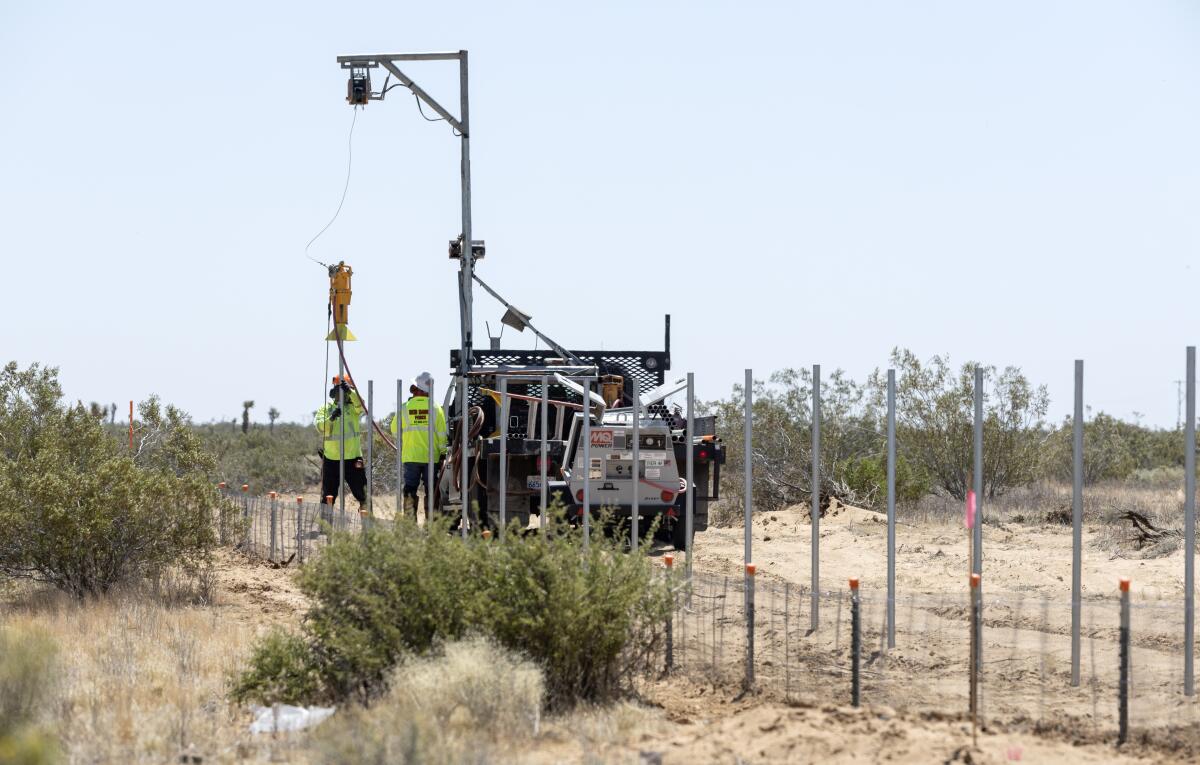Letters to the Editor: The fascinating Mojave Desert town that’s in the solar industry’s crosshairs

To the editor: Haven’t large-scale solar and wind projects been visibly and unnecessarily degrading desert ecosystems for long enough? (“Kill Joshua trees for a desert solar project? Readers want none of it,” letters, June 8)
Since the patch of Joshua Trees that used to be visible along the 5 Freeway near Lebec disappeared, the grove of these trees near Boron — site of the proposed solar development — has been one of the few places I know of where so many are visible near a heavily traveled highway. I feel very lucky to have visited Joshua Tree National Park before it became so unsustainable to do so.
Boron is a sad, cute little town with an amazing museum. You can visit and learn all about the filming in the town of “Erin Brockovich,” a movie based on the true story of environmental whistleblowing in nearby Hinkley. Those people have it hard enough without having to contend with the added respiratory health risk from the dust being kicked up during construction.
If they haven’t destroyed the trees yet, maybe someone can get Julia Roberts to come back to town and advocate to prevent this terrible idea from going forward.
GG Griesau, San Francisco
..
To the editor: Who is to say that a new technology could develop that would make current solar obsolete?
The Pony Express was made obsolete in less than a year because of the development of the telegraph. Napoleon built extensive canals to facilitate shipping, which were soon made obsolete by railroads.
Once the Joshua trees are cut down, there is no bringing them back in any foreseeable time frame. But we’ll always be left to ponder the horror of what was done.
Daina Krigens, Encinitas







